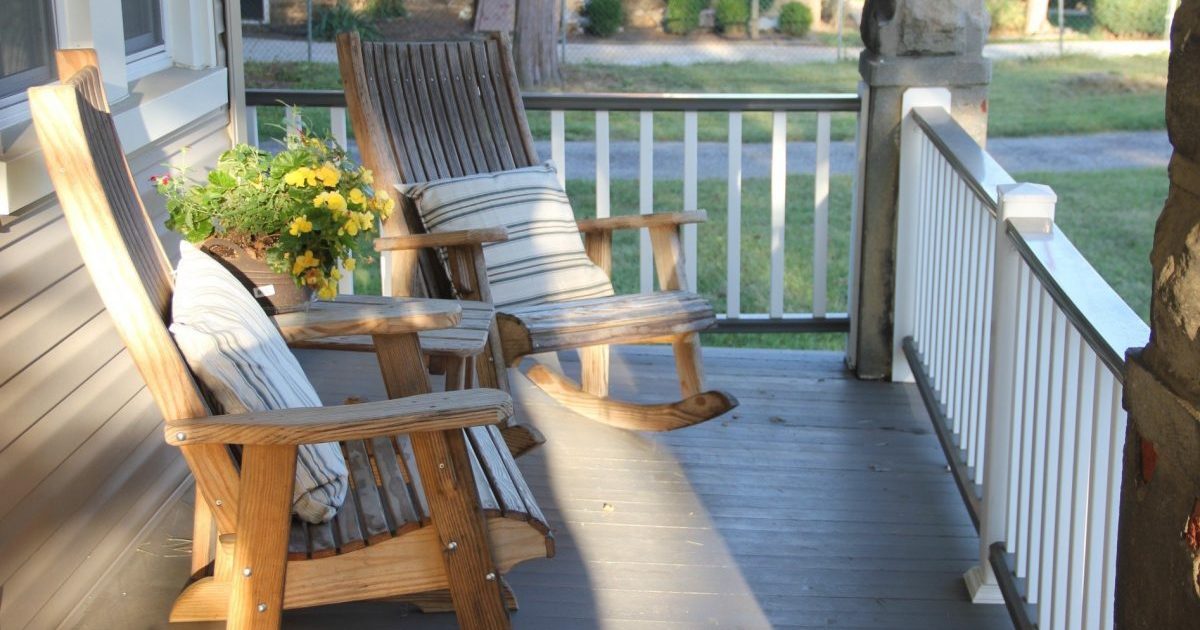We’re posting this week straight from the Dominican Republic! Our 2+ week vacation is almost coming to an end, but we’re excited to come back because every vacation means we’re even closer to retirement. This trip is giving us a nice break from the work routine and a chance to visualize our freedom.
It’s been amazing trying out all the fruits that are in season here, such as mangoes, pineapples, soursop (guanabanas – Tatiana’s favorite), and Spanish limes (limoncillos – one of my favorites as a child).
While taking a long vacation, we enjoy the lack of urgency to do too much. Most mornings, we just brew fresh coffee, read and write, and have breakfast in our rented condo. Then, it’s time for lunch, and we head to the beach in the afternoon. We’ve also had a chance to work on this post and decided to report to you on the progress of our house savings! As many of you know, this is the second financial goal of our early retirement plan. I’ve been debating in my head on whether making this goal public is a good idea for us.
There are many reasons to make a goal public, and one of them is accountability. But, we’re disciplined enough to follow through on our financial goals, so we don’t really need the extra accountability factor to make them happen. Also, people often advise that is not good to talk about plans and to show results instead.
So, I had to think hard about sharing this goal with the world. But sharing our goals and how we get there is how we roll at Enchumbao. Enchumbao is about showing you how we’re making the sauce. It’s no fun if we keep all the fun recipes to ourselves, now, is it?
We prefer to teach you how to fish and not just show you the fried fish on the plate.

This quote inspired me to put these series of updates in motion:
“The reason most people never reach their goals is that they don’t define them, or ever seriously consider them as believable or achievable. Winners can tell you where they are going, what they plan to do along the way, and who will be sharing the adventure with them.”
Denis Waitley
BAM! That’s a powerful statement. We’re not just telling you our plans, we’re also showing you our destination! The question about our goal is not whether we’ll accomplish it, but rather when because we’ll make it happen.
In the past, we told you we wanted to reach FI and have kept you updated along the way on our FIRE progress. So what’s wrong with continuing to share the next stage of our plan? Saving to own a place doesn’t need to be a hush-hush.
We want to own our roof, but we’re doing things differently
We want to own our roof, but we’ll be paying for it in cash. We’re choosing the least traveled path since mortgages are the most common path to homeownership. After all, forging our own path is the story of our lives. 🙂
Throughout our marriage, we kept away from the advice of buying a house, primarily because we understand that it wouldn’t have been the best place to invest and grow our money. A house is an asset that barely keeps up with inflation. Many people mortgage their first homes after they get married. According to a study by Coldwell Banker, 55% of couples buy their homes within the first 4 years of marriage or prior to marriage.
|
Let’s compare the traditional approach of home purchasing to the Enchumbao one.
The American Dream way (We like to call it the American Nightmare)
Raul Gastador meets the girl of his dreams, Jenny Now-Or-Never, and they get married. They plan to have a few kids someday, so they decide to buy a house shortly after the wedding. The couple buys a house with four bedrooms for $325,000. They can’t truly afford it, so they put down 5% and mortgage the rest for 30 years at a 4.5% interest rate. Since they put down less than 20% required to avoid PMI (Property Mortgage Insurance) they pay .5% of the borrowed amount in PMI during the initial years.

The housing cost consumes a big portion of their salaries. With the mortgage also comes high local taxes due to choosing a good school district for their unborn children, and other costs that are associated with homeownership.
The Gastadors are happy to be making a “great investment” but what they don’t realize is that their house will end up costing them almost double their original cost, due to the interest and PMI payments. Add up the interest and PMI payments and that’s $254,430.73 extra. It’s wiser to at least save the 20% of the down payment to avoid PMI.

Some could argue that a better move will be to leverage debt and invest it in the market but how many couples really save and invest the money instead? They move on to inflate their lifestyles with any raises and money that touches their hands.
On top of it being a bad deal, the Gastadors can’t afford to save much in their 401k plans and live paycheck to paycheck. They retire in their 70s but have to work part-time because they didn’t save enough for retirement.
The Enchumbao way
True story…
José meets the girl of his dreams, Tatiana, and they get married three years later. They plan to have a few kids someday, but until they are born and are ready to go to a school, there is no need to worry about extra bedrooms or school districts. So, instead, they focus on moving closer to work and renting a two-bedroom apartment they can easily afford, which was even cheaper than a modern one-bedroom apt. in the area.
They focus on reaching financial independence first, budget to live on less than one salary, and max out their 401k contributions and Roths every year. They reach FI in January of 2017 and focus on the second goal: saving for a house purchase in cash.
In a few years, they reach their goal, quit their corporate jobs, and retire early. (2019, here we come!) They have the cash they need to buy a house and will never have to worry about affording a house or paying the bills again. The only question now is where to go, and that’s a fun problem to solve.
Takeaways
So, renting until early retirement is our best option to stay mobile and be close to work. If we would’ve concentrated on following the herd, the house would’ve taken money that could have gone to investments instead, in the form of mortgage interest, upgrades, and closing fees.
It’s not like we can choose to paint the walls or upgrade the kitchen and floors of our rental apartment so no upgrades got in the way of investing. The boring beige hallways of our apartment and the lack of an open concept led us to wealth. We kept investing instead of upgrading our housing.
Tatiana gets ideas from HGTV as she watches on cable TV when we are in hotels. She takes mental notes on how to customize our future home. The anticipation is a great driver to get us to complete our goal.
If you think about it, before banks started the mortgage propaganda in the 50s, most people rented until they could afford to buy a house in cash. This was a time without loans for simple folks and there were no credit cards. So, our approach is to pretend we can’t get a loan and save in cash instead, and it’s been working beautifully for us thus far.
The unveiling of Nuestra Casa Fund goal
Our NCF (Nuestra Casa Fund) goal is to save an X amount to buy a house in cash after we retire. We’ll measure our progress by providing a monthly update against our benchmark. We’ll achieve our goal by continuing to work at our jobs while keeping our expenses the same or lower. As far as investing, our plan of action is to continue maxing out retirement accounts and saving the rest for the house in cash.
This goal fits into our overall early retirement picture of becoming financially independent and then saving for a house before retirement. We expect to reach our goal by July 2019.
Number one rule: Never, nunca, touch this money unless it’s for the house
Saving for such a goal is a big undertaking for us. And the last thing that we want is to use the money for other purposes. So, we have set one big rule around this and that is to never touch the money for something else. Once the money is saved, we pretend it’s gone, just a like a principal payment on a house that can’t be reversed by simply transferring from your equity to your bank account.
When and where would we buy?
Even though we want to be ready to buy as soon as we retire. We want to take our time exploring different locations and even countries, based on our preferences after we retire. We’ve come to realize that there’s no such thing as the perfect place to live. We’ll have to be willing to give up a few things depending on where we choose to live. It’s a matter of defining what’s most important to us.
The question is: What are those things that we’d be willing to give up? We can’t answer that with 100% certainty at this point in our journey, so we’ll take more time to explore. The ideal time will be once we retire and have a clear mind without full-time jobs clouding them or limiting our time.
Buying abroad
Having cash will give us the ultimate power to buy wherever we want, but it comes in handy even more when buying a property outside of the U.S. There are a few disadvantages in completing real estate transactions abroad with loans: Mortgages are not as easily available and it can take months to get a bank loan in some countries. Interest rates are also much higher than in the U.S. and the loan process can be cumbersome.
The great news is that we’ll be able to negotiate a better deal with cash. We’ll aim to get a nice cash discount. If the prices are low due to a distressed economy or a real estate cooling period, then we’ll have even more negotiating power.
Our passive income streams to the rescue
You can’t become financially independent without creating sources of passive income. Thanks to our diligent ways of investing, the dividends, capital gains, and rental property income will now help us fund our home purchase.
The Nuestra Casa Fund will barely keep up with inflation
There are ways to increase the returns on this money, but that involves taking more risks. If we need money within three years, we don’t put it into riskier investment vehicles. We’re okay with little to no real return on this money, while we wait until we can put it to good use.
Not all of our money needs to work as hard. Your net worth is like a chess set, all the pieces have different roles. The house money is like a pawn that just needs to make one move at a time, but that one-move limitation doesn’t take away the power to bring down a queen when played strategically.
This is not money set aside for investments, as I don’t consider a home an investment that would provide monetary returns. We’re looking to build great memories in the place that we choose to buy and one can’t put a dollar value to that.
NCF June Update
Below are our May results along with what we’ve accomplished this year. We are now at 30% of our goal. That’s almost one-third of our fund saved!
We couldn’t save as much because we spent over $4,000 in property taxes and in making some repairs and upgrades to the rental property. That repair money was well spent since maintaining properties in excellent condition is essential to real estate investing.
| Year-to-date NCF Update | |||
| Month | Percent of Goal Met | Benchmark (the goal we set) | Percent Increase towards 100% |
| January | 23.9% | 23.9% | Started tracking this goal. |
| February | 25.1% | 26.5% | 1.2% |
| March | 28.5% | 29.2% | 3.4% |
| April | 28.8% | 31.8% | 0.3% |
| May | 30.2% | 34.5% | 1.4% |
We’re marking January as the unofficial start of our goal. Therefore, we set up the benchmark, to begin with, the results from that month. We based the benchmark on what we can reasonably save over the next two years. Any capital gains resulting from any fund sales from our taxable accounts could help us get there faster.
Measuring against our benchmark, we’re a little behind schedule. We should be at 34.5% of our goal in order to meet our deadline of July 2019. We need to catch up!
I’m not concerned though as we should be able to catch up, now that certain annual rental property expenses have been paid. Also, we allocate more towards our 401k contributions earlier in the year, by front-loading, so the next six months will give us a chance to catch up.
Allocation between the Freedom Fund and Nuestra Casa Fund
If you recall from our previous FI updates, the Freedom Fund will cover our expenses in retirement. We project allocation of 85/15 by the time we retire. The Freedom Fund would comprise 85% of the allocation, while the Nuestra Casa Fund would make up the rest.

That’s it for our NCF goal reveal. Will we meet our goal by July 2019? 🙂 Time will tell. For now, it’s time to have some lunch. We’re just getting back from a great full body massage ($35 each!) and will soon relax some more and enjoy an afternoon at Juanillo Beach.







I highly enjoyed this 🙂 it’s definitely interesting because everyone aims to own a house asap, it makes them feel like they are going the right path, “American dream”,etc. I definitely agree that eliminating mortgage is a huuuge weight of your shoulders and allows for more investing opportunities.
I do wonder though, are there good options for buying a fairly nice large apartment with good rent after I begin working full time:o ? Guess I’ll see.
Thank you so much for the post!
Hi Jessica!
I’m glad you enjoyed the article!
Real estate varies locally and it’s hard to tell without knowing where you’ll land after you find a full-time job. I recommend reviewing your options once you cross that bridge.
You might want to consider renting a nice large apartment instead and see how that it feels. If later on you change your mind you can always move without getting stuck with owning an apartment that might not be suited as an investment property. Also, what if you change jobs? People change jobs often nowadays so staying mobile is another option to consider.
I’m surrounded with stories at work of people that bought condos/homes while single, got married, and then got stuck with properties that barely break even. So put all your options on the table when the time comes and figure out your exit strategies.
Thank you for commenting! 🙂